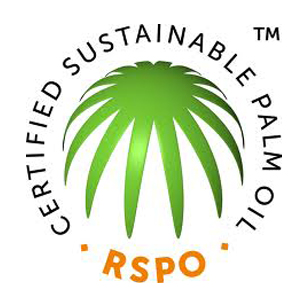
When you go to the grocery store and you buy a bag of chips, a chocolate bar, crackers, ice-cream, doughnuts, frozen snacks or other candy, you may see a label on the products saying ‘RSPO Certified Sustainable Palm Oil’ or ‘Green Palm Sustainability.
Such labeling makes it is easy to think that the product you are holding contains palm oil that has been produced responsibly.
But what does the label really stand for?
The Roundtable of Sustainable Palm Oil (RSPO) is a global certification scheme formed in 2004 to set the standard for ‘sustainable palm oil’. But the sad truth is, many of the companies that use these labels are in fact still causing rainforest destruction and the clearance and draining of carbon-rich peatlands that release massive amounts of greenhouse gas emissions into the atmosphere.
Shockingly, Indonesia – the world’s largest palm oil producer – is also the world’s third largest greenhouse gas emitter after only China and the US.
But unlike China and the US, 50% of Indonesia’s emissions are from cleared and drained peat lands, and 35% from clearing rainforests. Palm oil expansion is one of the top drivers of this destruction but under the RSPO these companies don’t need to publicly report the emissions they are responsible for. How are we going to fix this global problem if companies don’t fess up to their emissions?
Today in Kuala Lampur, the RSPO, which includes some 400 members who are palm growers, oil processors, traders, consumer goods manufacturers, retailers, investors and social and environmental NGOs, voted to adopt a new RSPO standard that still fails to address the climate impacts of palm oil productions. This vote by the RSPO members to support a new RSPO standard that certifies deforestation and excessive greenhouse gas emissions as ‘sustainable palm oil’ is a step in a wrong direction for the credibility of the RSPO.
The new RSPO standard is not a standard that can be trusted to produce Responsible Palm Oil.
What’s needed now is for the companies that produce, trade and use palm oil in their products to go beyond the RSPO and commit to producing and sourcing palm oil that is truly RESPONSIBLE.
For this reason, RAN has just sent letters to 20 snack food companies—makers of some of the most popular brand name products in America—alerting them to the rainforest destruction in their supply chains. RAN has launched a campaign to convince America’s favorite snack food companies to go beyond the RSPO and to source RESPONSIBLE palm oil.
In order for us to succeed we need your help.